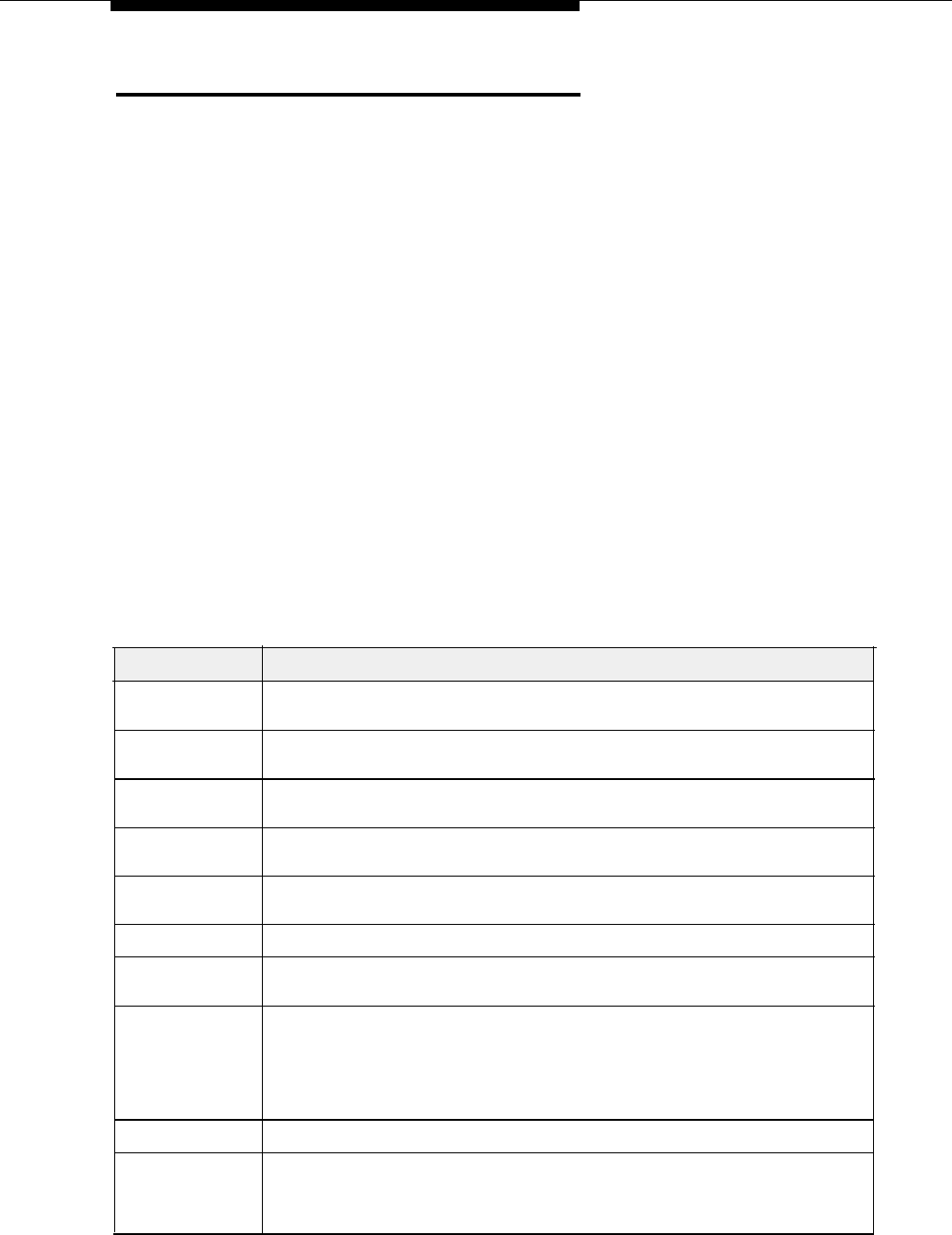
Centrex Services
With each Centrex line, you have a set of Centrex services (some services may
not be available on all lines). Table 3-1 lists some of the most popular Centrex
services.
To complement your Centrex services, your equipment controller provides
additional features. You can use Table 3-1 to identify the services you have on
your Centrex system; then see Chapter 4 for more information on equipment
features you may want to add to your system.
Centrex services are supplied by your local telephone company; see the
Centrex documentation provided by your local telephone company for more
specific information on the services available with your system. Also, be aware
that the names of services may vary depending on the supplier. You can use the
System Planner to record the services available on each line in your system.
NOTE:
Many Centrex services are accessed by pressing the switchhook on a standard
phone, then dialing a Centrex feature code. On an MLS- or MLC-model phone,
however, use the Recall feature to send a timed switchhook flash and then dial
the Centrex feature code—see Chapter 5 for instructions on programming the
Recall feature on a button and Chapter 6 for instructions on using the Recall
feature. Pressing the switchhook on an MLS- or MLC-model phone disconnects
the current call instead of sending a switchhook flash.
Table 3-1. Examples of Popular Centrex Services
Name
Description
Abbreviated Lets users call another Centrex extension by dialing a short code (or “Centrex
Extension Dialing
extension ID”).
Call Detail
Records calling statistics for each Centrex line; reports are sent periodically
Recording
from the telephone company.
Call Forwarding
When a caller gets a busy signal, forwards the call from the busy line to a
(Busy)
designated number.
Call Forwarding
(No Answer)
Call Forwarding
(Send All Calls)
Call Hold
Call Pickup
Call Waiting
When a caller gets no answer within a designated number of rings, forwards
call from the unanswered line to a designated number.
Forwards all calls to a number specified by the user when the feature is
activated. (User may be able to specify an inside or outside number.)
Puts a call on hold so that the user can place another call on the same line.
Lets a user dial a code to pick up a call ringing at any extension in the pickup
group.
When an inside caller gets a busy signal, the caller can dial a code to send a
“call waiting” tone to the dialed extension. The party dialed can then pick up
the call or hang up when finished with the current call (the waiting calI rings).
Another form of Call Waiting supplies a “call waiting” tone whenever a call
comes in on a busy line; the caller does not have to dial a code to send the
signal.
Conference Lets a user speak with several parties at the same time.
Dial-Out Code
Requires that users dial a code (usually “9”) before dialing an outside number.
If a dial-out code is required, this code should be programmed for the
premises equipment using the PBX Dial-Out Code (#106) procedure. See
page 5-10.
Using the Equipment
3-5
